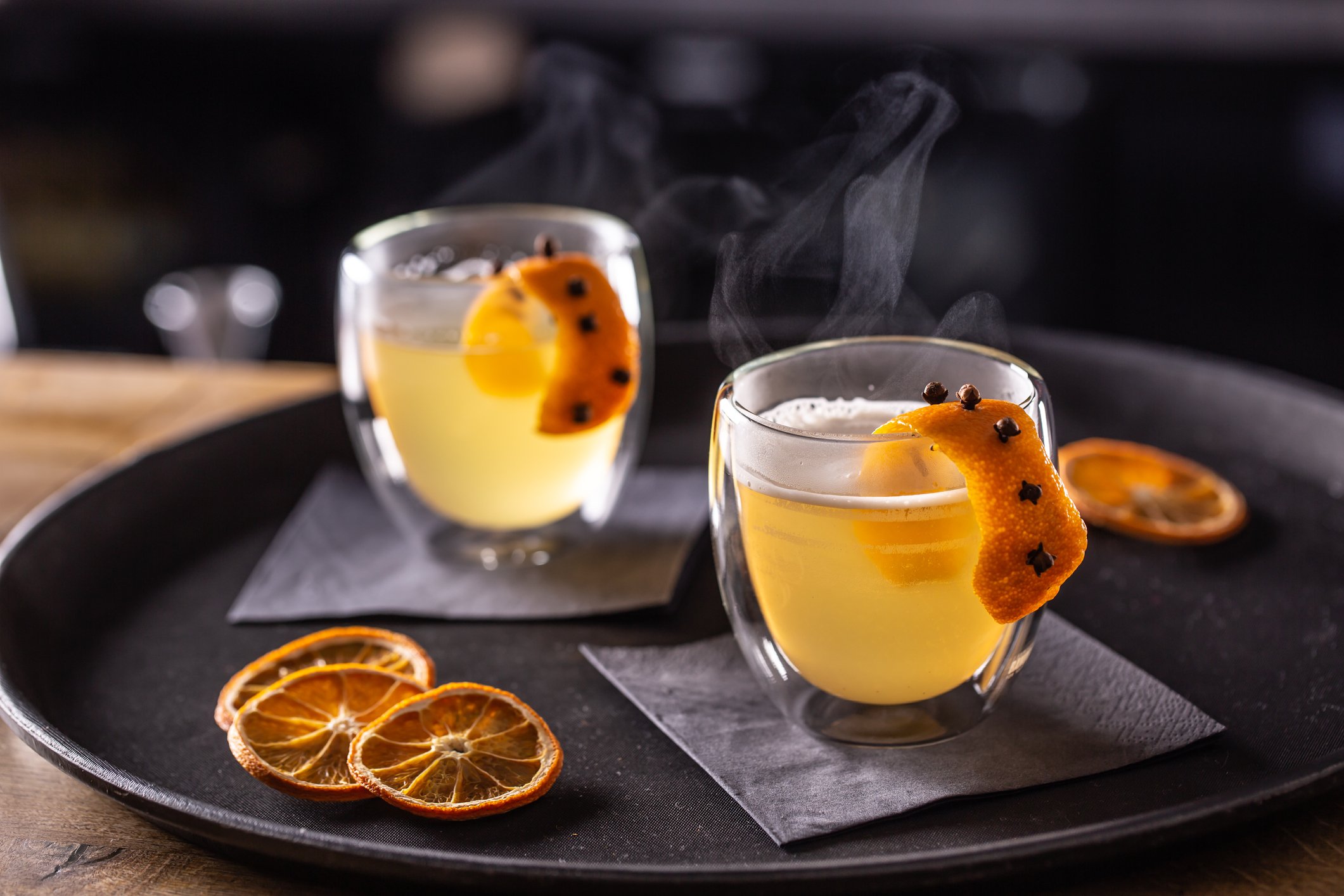The host of this month’s webinar was Dr. Stacey Fritsch. She is a naturopathic doctor whose passion for science, health and the well-being of her fellow human beings is evident in both her clinical practice and daily life. After earning a degree in biomedical engineering and completing a four-year medical program at the Canadian College of Naturopathic Medicine, Dr. Fritsch uses an eclectic approach to help patients navigate their health. In this article, she will highlight the effectiveness of warm natural drinks and talk about their hidden benefits. If you would like to watch the webinar and hear Dr. Fritsch talk on the subject you can click here.
The first thing Dr. Fritsch, an Ontario native, mentioned was the importance of speaking to your nurse or doctor before starting any medical intervention to ensure that it is safe for you. “Even though something is natural there can still be complications with different health conditions or medications that you might be taking,” she advised.
Dr. Fritsch pointed out that naturopathic doctors are regulated health professionals who “complement the health system rather than being an alternative” to it. Naturopaths have a wide scope of practice and usually focus on diet and supplements to get the root cause of a health problem. It’s a more holistic approach than your regular doctor.
Dr. Fritsch began by talking about what herbal infusions can help strengthen your immune system. She referred to your immune system as “your own personal army” that surveils your body for - and fights against - foreign invaders, like viruses or harmful bacteria. “There are lots of things we can do to support this army to make sure it’s fighting the best way it can,” she said. Dr. Fritsch added that sleeping well, eating well, exercising and taking the right supplement are great ways to boost your immune system, stressing the importance of eating and sleeping well.
Dr. Fritsch went on to acknowledge the positive impact of antibiotics on modern medicine but urged people to be cautious when using them as they are often prescribed when they are not needed. Antibiotics can wipe out good bacteria throughout your body and weaken the immune system so Stacey said it’s good to explore all avenues before going on a course of them. “The problem with the overuse of antibiotics is that it’s allowing global resistance to some serious infections,” said Dr. Fritsch.
Hot Toddy recipe
Dr. Fritsch talked about the benefits of Hot Toddy and she recommended an alcohol-free recipe which you can find on the webinar. She added that anytime you are drinking tea or any hot drink for medicinal benefits you should steep what you are infusing in a covered cup to prevent any of the therapeutic properties from evaporating.
History of the Hot Toddy
While people around the world have been drinking herbal-infused teas for thousands of years, Stacey said the Hot Toddy’s roots come from Ireland, England and India, with a different story attached to each country. As far back as 1610 there was a warm alcoholic drink consumed in India called “taddy”, a Hindu word. There are various stories of British pubs pouring hot water into hard alcohol for their customers wanting to combat colds and flu in a rainy climate. Then there is the story of Robert Todd, an Irish doctor who found it beneficial to prescribe brandy and hot water to his patients when they were sick.
Ingredients you could use in a Hot Toddy
Lemon - A strong antioxidant and immune booster, it is full of Vitamin C that can reduce the severity of a cold/flu. It also thins and reduces phlegm which is key to removing mucous from your body.
Honey - An ancient, sweet-tasting and potent remedy, honey has antimicrobial powers and helps with sore throats while reducing the frequency and severity of coughing.
Alcohol (optional) - Used in moderation it can help patients warm up and sleep better. It also dilates the blood vessels to help herbal remedies reach their destination in the body. Dr. Fritsch advised all to be careful about consumption and to make themselves aware of any harmful reactions alcohol might have with over-the-counter medications anyone might be on.
Cinnamon - This sweet spice is an antiseptic and can help solidify stool for those with diarrhea. It’s another warming substance and it can help with congestion in the lungs.
Cayenne - “Cayenne is one of my favourite tinctures when I have a sore throat,” said Fritsch. This hot spice contains capsaicin. It is an antibacterial with Vitamin A (good for fighting viruses) that stimulates warming and supports healing by increasing circulation. It also helps with pain relief.
Ginger - This antioxidant root is excellent for treating inflammation. It is warming and has antimicrobial effects while also being helpful for digestion.
In addition to the ingredients, Dr. Fritsch points to the psychological effect of having a warm drink. Stress and anxiety negatively impact the immune system, so Stacey recommends deep calming breaths while enjoying your hot beverage. According to Dr. Fritsch, a 2008 study also found that drinking a warm drink instead of consuming the same beverage at room temperature alleviated more symptoms in patients.
Complimentary therapy
It may sound odd but Dr. Fritsch recommends temporarily putting on cold wet socks when you have a cold or flu. “It draws the heat from your head down to your feet and alleviates some of the congestion,” she said. “It does sound like hocus pocus but I always do this when I’m sick. It’s very good for a fever,” added Stacey.
The camaraderie of sharing a hot beverage
Andrew Craig, Aspira’s National Director of Culinary Services spoke at the end of webinar to remind people about the social aspect of a hot beverage. “Being able to get together in our communities with your friends and team members in the community. There is a great sense of camaraderie when a group gets together and has a hot beverage,” said Andrew.
Dr. Fritsch encourages people to add a naturopathic doctor to their care team and provided the following links for anyone interested in doing so. Naturopathic doctors are not covered by OHIP except in British Columbia where there is some coverage, depending on income.
Ontario: CONO
collegeofnaturopaths.on.ca
Saskatchewan: SANP
cndsask.clubexpress.com
British Columbia: BCND
bcnd.ca
If you would like to ask Dr. Fritsch any questions you can email her at drfritsch@porthopesportsrehab.com


